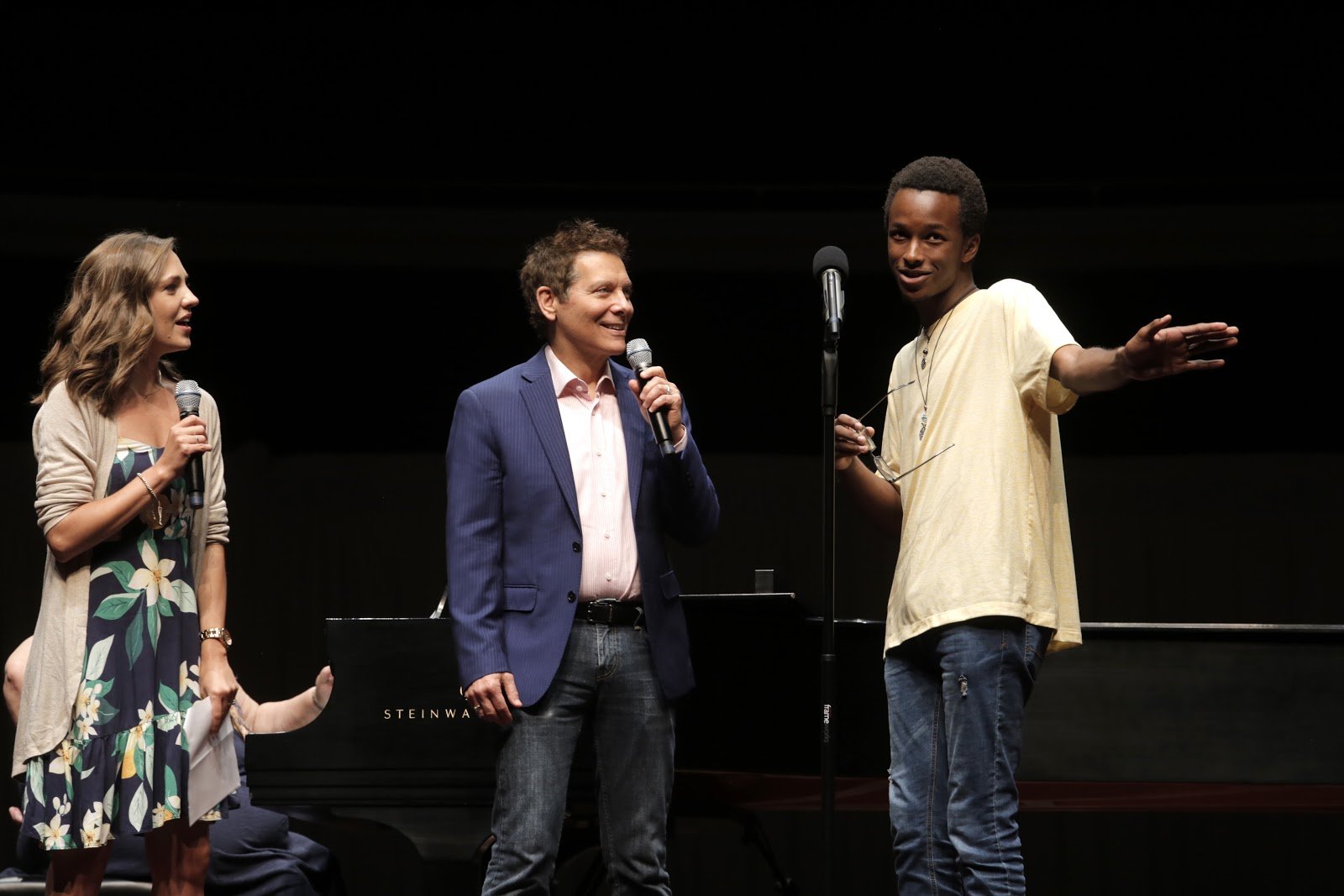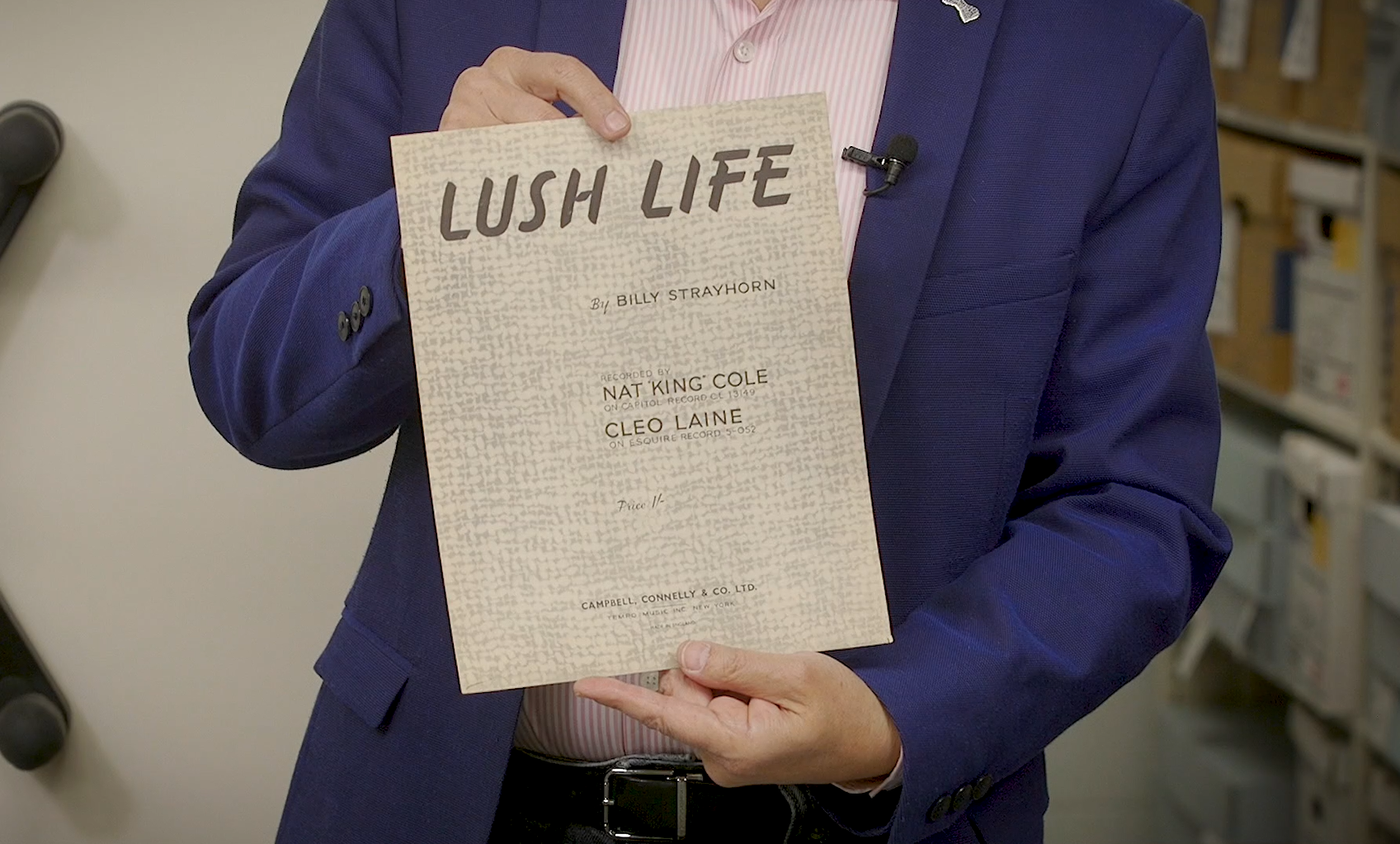Selecting the right repertoire is a critical part of any audition, and it may be one of the most challenging tasks you face as you prepare. So, if you’re finding yourself Googling “how to pick an audition song,” then look no further.
Meet your Mentor
The Songbook Academy® is a national summer music intensive that provides pre-professional training for high school students who love to sing! Whether you prefer classic Broadway hits or jazz standards, there is music here for everyone. To apply for the program, singers submit video recordings of themselves performing two contrasting selections from the Great American Songbook.

Every applicant receives written feedback on their video submissions from a panel of nationally recognized experts. Forty students are invited to Carmel, Indiana, for a week-long intensive with Tony Award-winning theatre professionals, leading recording artists, and top university professors from around the country.
The Songbook Academy invited Acceptd to step into the Songbook Archives with founder and mentor of the Songbook Academy, 5-time Grammy nominee Michael Feinstein. Alongside a two-time Songbook Academy alumnus and high school student just like you, Michael shares his expert tips on selecting and preparing repertoire that will set you apart in your audition.
Watch the full interview or scroll to pick up a few tips!
Find a Song to Make Your Own
Michael: Find a song that, first of all, you can make your own. And then take that song and make sure it is personal, but also will speak to the people hearing you do the song.
Tips From An Alum
Take 15-30 minutes a day to listen to Songbook songs on Spotify or YouTube
Sit down with your teacher and make a list of songs together
Narrow your songs that fit your voice type
Read the lyrics and find words that you can relate to
Listen to many different artists to hear a variety of styles
Reference the Original Sheet Music
Listen to Nat King Cole sing “At Last” by Harry Warren and Gordon Jenkins
Michael: Most people know this song in a version that was recorded by Etta James, and she did a very specific interpretation where she changed the musical line…but every time I hear a Songbook Academy participant do it, they always exactly copy Etta James.
I would do it too when I first started. I would listen to a recording I liked of something and I would copy it. But, it’s much more valuable to go back to an original copy of a sheet music and see what was originally written and learn it from the primary source.
Tips From An Alum
Research the background and lives of the lyricists and composers.
Was it made for a movie or musical? How did the song fit into the story?
What were the initial motivations behind the creation of your song?
Read the lyrics and find words that you can relate to.
Find a Song You Can Connect to Emotionally
Listen to Billy Strayhorn play and sing “Lush Life”

Michael: Billy Strayhorn was 17 years old when he created it (the song “Lush Life”). He was quite worldly for his years. So often, participants in the Songbook Academy, who are 15-18 want to sing this song and they’re just not ready (emotionally).
When anybody sings a song and they have a story or a picture or picture in their mind… it changes the way we sing a song. Even if nobody knows what’s going on in our brain, they can see it in the light in our eyes, they see it in body language, they feel it. That’s what’s so interesting about interpreting music as a performer. Every single person who performs a song, just by virtue of who they are in their DNA is unique.
Try This Approach:
Take the lyrics of the song you are considering for your audition and read them out loud
Ask yourself: Can I find a connection to my life experiences that will help me relate to these lyrics?
Choose Age Appropriate Repertoire
Listen to Frank Sinatra sing “You Make Me Feel So Young” by Josef Myrow and Mack Gordon
“You Make Me Feel So Young” is a song that a lot of us know, especially if you watch Elf every year. It’s fun to sing a well-known song in a swing style like Sinatra, but keep in mind that the lyrics are just as important as the music. A song like “You Make Me Feel So Young” may not make sense for a young artist who is well...young.
Things to Consider:
Write down a list of experiences you’ve had in life. Have you been in love or had a crush? Have you been hurt by someone? Have you traveled? Do you have something you’re passionate about?
Be realistic about whether you are ready to sing a song and make the emotional connection required.
If you have experienced some of the feelings that your song calls for, your performance will feel more authentic.
Where Can I Find Resources and Music?
“So often I will find that the participants will choose a lot of the same songs, and there are hundreds and hundreds and hundreds of thousands of songs that are out there. I suppose that sometimes somebody might be scared to choose something that’s too off the beaten path, but we welcome unusual choices.” ― Michael Feinstein
Michael Feinstein’s American Songbook: Discover a song, or story behind the song. You’ll have a great time with some classic music and gain a greater insight into the history of our great American Songbook.
Songbook Foundation Spotify: The Great American Songbook Foundation has over 50 playlists filled with the music of the Songbook.
Prep Your Rep on Spotify: This ever-changing playlist is created for Songbook Academy applicants with unique selections from the Songbook that aren’t done regularly.
Songbook Foundation Archives: If you have found YOUR song and want to check if the original sheet music is in the Songbook Archives, contact SongbookAcademy@thesongbook.org and a member of our staff will email a copy of your music.


